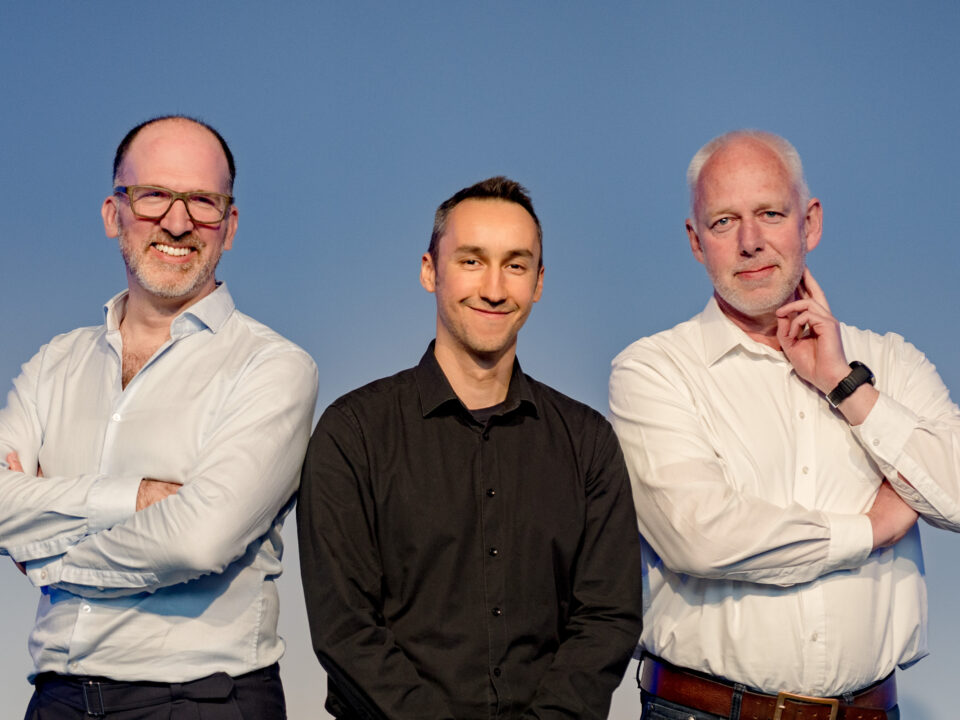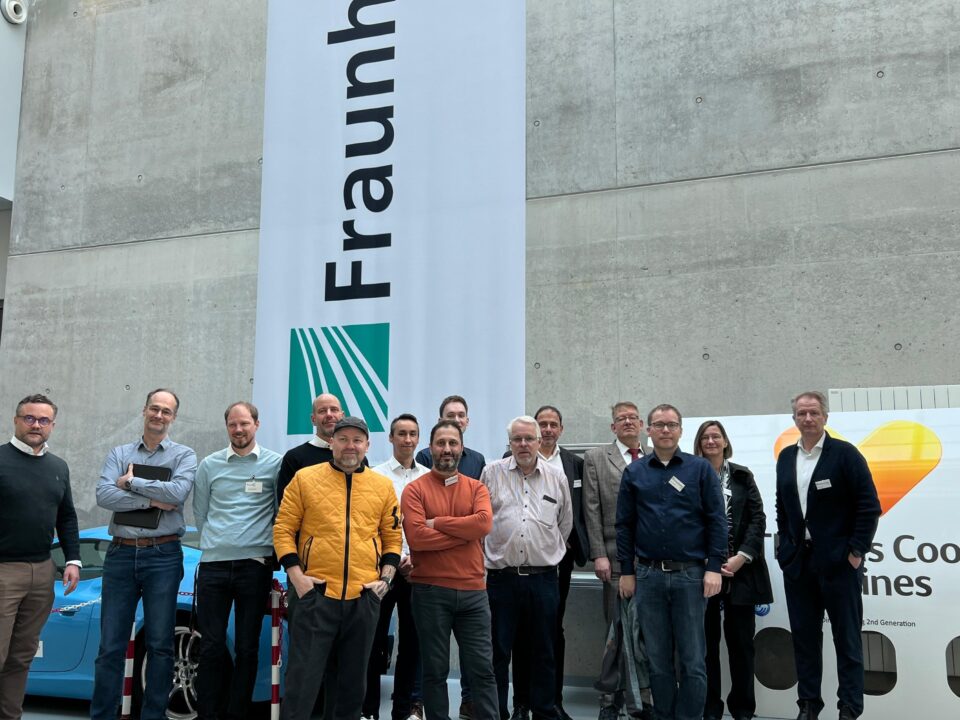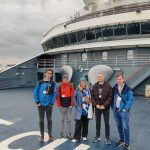
Drift+Noise’s Journey to Pioneering Polar Navigation
17.06.2024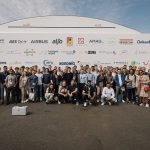
Student excursion: ILA 2024
21.06.2024Welcome to the ESA BIC Northern Germany Alumni Series, where we showcase the remarkable journeys and experiences of our alumni startups. As prospective incubatees explore the possibilities within the ESA Business Incubation Centre Northern Germany, this series offers a first-hand glimpse into the transformative impact of our incubation program.
Each instalment of the Alumni Series provides a unique opportunity to delve into the stories of startups like TRILITEC GMBH, who have thrived within the ESA BIC ecosystem. Through the interviews, alumni share insights, lessons learned, and the support received during their time in the programme.
Today we talked to Benjamin Littau, CEO of TRILITEC, in Bremen. TRILITEC uses space data to enhance the quality of their sensors, which are employed in production (and agriculture) to detect foreign objects and optimize processes. This innovative application of space technology led to TRILITEC being supported by the ESA BIC Northern Germany. May his journey inspire you to join the ESA BIC startup community!
- Tell us a bit about TRILITEC and what you do?
The initial idea we started with when we were part of the ESA BIC Northern Germany came to me during a party with some farmers. They found out that I was not in fact a farmer, but that I was doing “something” with sensors and measurement technology. They told me about the yearly accidents they have with running their equipment into metal pieces, stone obstacles, animals. From this, my brothers and I had the idea to use sensors that I had been using to distinguish between different materials – this was the start of our project with the Erntewächter. We began with developing this product for the agriculture sector, but very soon we realised that the market in agriculture is not so easy to get into.
While all this was happening, we were also receiving requests from industrial companies asking about our sensors and whether they could detect foreign objects in production line processes. Due to this, we shifted our focus more to this use-case, using the same sensors, but applying them in a production line.
We started on automizing foam processes such as the manufacturing of mattresses. Our main task there is to automate the quality control. The problem is that you usually take samples out of your production line, analyse them in the lab, and input your measurement values into a database – everything done manually. Nowadays, in Germany, they have the problem that there are increasing demands and requirements, which means you need to take more and more samples to ensure quality and, on the other hand, you don’t have the right personnel to ensure quality control. There is a huge demand for automation in these processes.
Depending on where we place our sensors, we can solve multiple current challenges. Placed at the beginning of the production line, for example, the sensors give immediate feedback to the operators that can directly identify the problem and react to avoid unnecessary waste. Placed at the end of the production line, the final product’s quality parameters are determined and automatically documented, therefore, avoiding time consuming analysis in the lab.
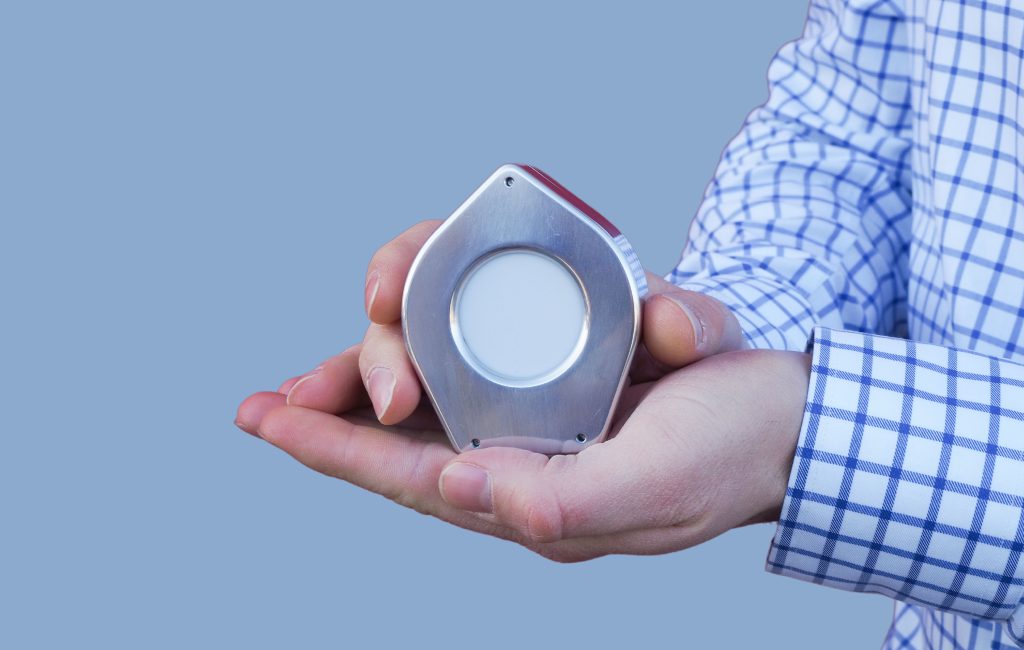
The sensor (© ESA BIC Northern Germany)
- Tell us about your team!
In the beginning it was my brothers and I, now, there are eight of us, a strong technical team, meanwhile we welcomed a new team member with more than 30 years of experience in sales and business development. Our goal right now is to evolve from a startup into an industrial company. This includes establishing a proper business administration as well as starting to standardize our working processes to increase our efficiency in providing standard products.
- How did you come to know about the ESA BIC Northern Germany business incubation programme and what motivated you to apply?
We started as a university project and then began looking for investments and initially, when we came across ESA BIC Northern Germany, we were not really sure how we could connect with space. After looking more into the kind of technology that ESA offers within the incubation programme, we were better able to understand how we could fit into this and also how we could benefit from joining.

TRILITEC Team (© ESA BIC Northern Germany)
- During your time as one of the incubatees, what are some highlights or goals that you have achieved?
During our time as an incubatee, we had a lot of contact and partnerships with different research institutes – not just at the University of Bremen, but also with SKZ – Das Kunststoff Zentrum in Würzburg, for example. They actually gave us the use-case of material analysis within the production line. That was the start of our shift from our original use-case in agriculture to what we’re currently working on now. At the German Plastic Centre in Würzburg, we were also able to develop our technology further and had our first pilot customers.
It was really a highlight for us to see other people believe in our abilities and our technology and say, “hey! You can really do something with this.” We had a lot of people supporting us.
- What is your advice for aspiring entrepreneurs and young startups?
Don’t hesitate to start. If you don’t start, you will always ask yourself, ‘what could have happened?’ Focus on your customers and try to get support and advice as early as possible.
- In one sentence, how would you describe TRILITEC?
TRILITEC – bringing together new energy with senior experience to sense the unknown, to save lives, and resources in agriculture and industry.
Learn more about TRILITEC GmbH under following links:
As you embark on your entrepreneurial voyage, we invite you to discover the diverse paths taken by our ESA BIC Northern Germany alumni, from start to graduation. Their experiences serve as inspiration, illuminating the possibilities that await within the vibrant community of ESA BIC Northern Germany.
Join us on this journey as we celebrate innovation, collaboration, and the boundless potential of space-tech startups. Together, we shape the future of entrepreneurship and technological advancement, one success story at a time.
About ESA BIC Northern Germany
The Incubation Centre of the European Space Agency in Northern Germany (ESA BIC Northern Germany) is headquartered jointly with the Bremen aeronautics and space industries association at the Bremer Innovations- und Technologiezentrum BITZ as well as the Digihub Industry – two of the largest innovation and technology centres for high-tech companies and startups in Bremen. The ESA BIC Northern Germany brings new startup opportunities to the region and thus strengthens the aeronautics and space sector in the German federal state of Bremen. AVIASPACE BREMEN e.V. supports the incubatees with its network, public relations work, and targeted coaching not only during the incubation period, but also afterwards as alumni. Starthaus is the central point of contact in the Bremen startup ecosystem and supports the startups on all issues relating to business development and financing. The ESA BIC Northern Germany is managed by Anwendungszentrum GmbH Oberpfaffenhofen (AZO), an international networking and branding company for the European space programmes that also manages ESA BIC Bavaria with three locations in southern Germany.
Since 2021, ESA BIC Northern Germany has also been offering its service to space-related startups in Schleswig-Holstein. The Technikzentrum Lübeck with GATEWAY49, AviaSpace Bremen and AZO jointly operate this extension of ESA BIC Northern Germany. There are also plans to extend ESA BIC Northern Germany to the northern German federal states of Hamburg, Lower Saxony, Mecklenburg-Western Pomerania, and Berlin-Brandenburg.
Technical support of the ESA BIC Northern Germany, is offered by Fraunhofer IFAM, German Research Center for Artificial Intelligence DFKI, Alfred-Wegener Institute for Polar Research AWI, Bremen University, Center of Applied Space Technology and Microgravity ZARM, Airbus Group, ArianeGroup, AES Aircraft Elektro/Elektronik System, DSI Aerospace, and OHB.






